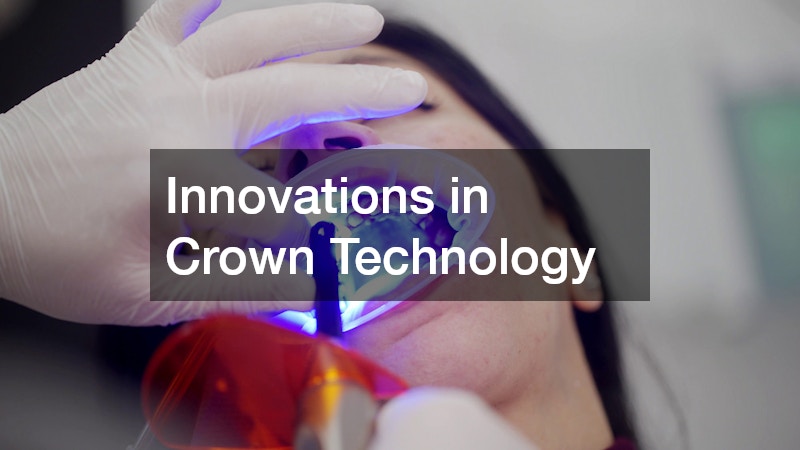What Is a Dental Crown?
A dental crown is a tooth-shaped cap that is placed over a damaged, decayed or misshapen tooth. It acts like a helmet, protecting what remains of the natural tooth structure while restoring its original shape, size and function. Crowns can be made from various materials, including porcelain, ceramic, metal alloys or a combination of materials. The choice of material typically depends on the location of the tooth, the patient’s preferences and the clinical judgement of the dentist.
Porcelain and ceramic crowns are particularly popular for front teeth because they closely mimic the appearance of natural enamel. Metal crowns, while more noticeable, are extremely durable and are often used for molars that are less visible but require more strength due to biting forces.
Why Dentists Recommend Crowns
Dental technicians may recommend a crown for several reasons. The most common is to protect a weakened tooth, perhaps due to decay or a large filling that leaves the remaining structure vulnerable to fractures. Crowns are also used to restore teeth that have already broken or those that are severely worn down.
In many cases, crowns are the final step after a root canal treatment. Once the pulp of a tooth is removed, the remaining structure can become brittle and prone to breakage. A crown provides necessary reinforcement and extends the lifespan of the treated tooth.
Crowns also play a critical role in cosmetic dentistry. When teeth are misshapen, discoloured or out of alignment, crowns can offer an aesthetic solution that blends seamlessly with natural teeth, delivering both visual appeal and improved function.
The Crown Placement Process
Getting a crown usually involves two visits to the dentist. During the first appointment, the dentist examines and prepares the tooth. This includes removing any decay and shaping the tooth so the crown can fit securely. An impression of the tooth is then taken, which serves as the template for crafting the crown. While the permanent crown is being made—usually in a dental laboratory—a temporary crown is placed to protect the prepared tooth.
At the second visit, the temporary crown is removed and the new, custom-made crown is cemented in place. The dentist checks the fit, bite and colour match to ensure the crown blends naturally with the surrounding teeth. When properly cared for, crowns can last anywhere from 10 to 15 years or even longer.
Caring for Your Dental Crown
Maintaining a crown is similar to caring for your natural teeth. Good oral hygiene is essential. Brushing twice daily with a fluoride toothpaste, flossing regularly and visiting your dentist for routine check-ups will help keep your crown and surrounding teeth healthy.
Although crowns are durable, they’re not indestructible. Chewing ice, biting fingernails or grinding your teeth can cause a crown to crack or dislodge. If you grind your teeth at night, your dentist may recommend a custom mouthguard to protect your restoration.
Innovations in Crown Technology

Modern advances in dental technology have significantly improved the crown process. Digital impressions are now commonly used, replacing the traditional moulds that some patients find uncomfortable. Some practices offer same-day crowns using computer-aided design and manufacturing (CAD/CAM) technology, which allows the crown to be designed, created and fitted in a single appointment.
Material science has also evolved. Zirconia crowns, for example, offer a combination of strength and aesthetic appeal that rivals both metal and porcelain crowns. They’re biocompatible, meaning they are unlikely to cause adverse reactions and they can be precisely colour-matched to surrounding teeth.
Dental crowns are a time-tested solution that dentists use to address a wide range of issues, from structural damage to cosmetic concerns. Thanks to advances in materials and technology, today’s crowns are more durable, comfortable and lifelike than ever before. By choosing a qualified dentist who understands both the science and the artistry of dental restoration, you can enjoy a revitalised smile that feels as good as it looks.
Whether you’re facing tooth damage, dealing with a root canal or simply looking to improve your smile’s appearance, talk to your dentist about whether a crown is right for you. It’s a reliable investment in your oral health—and your confidence.
